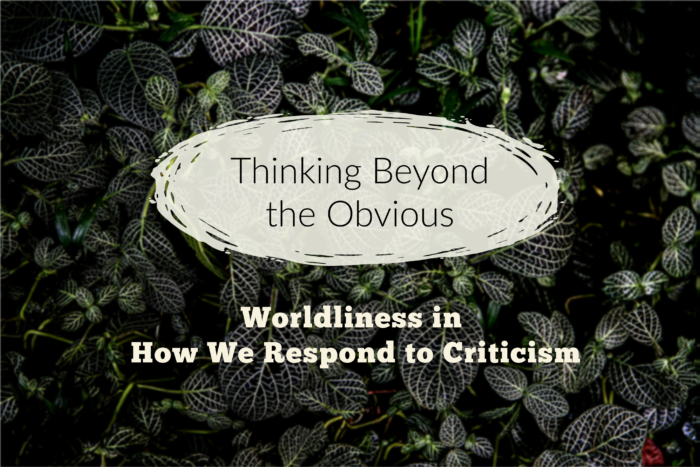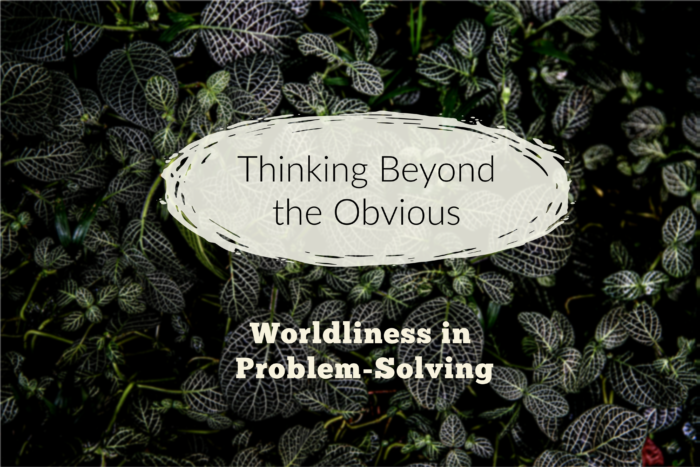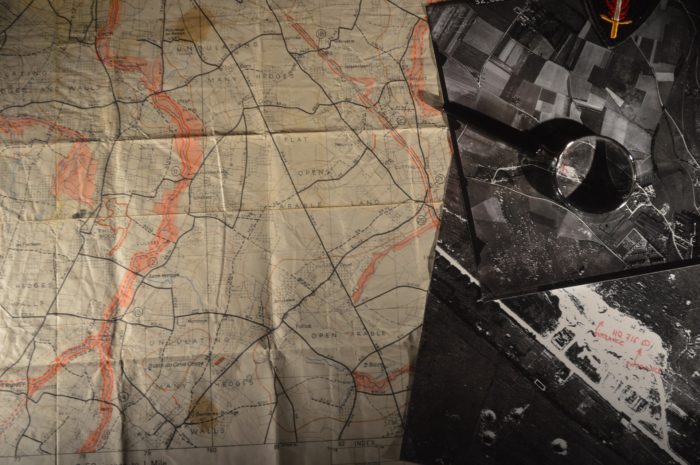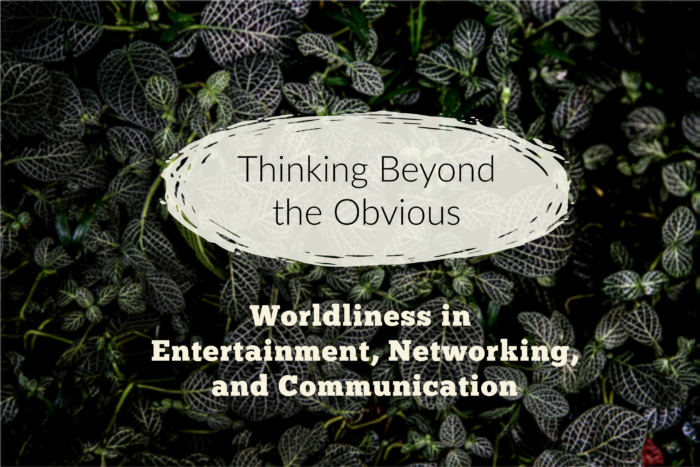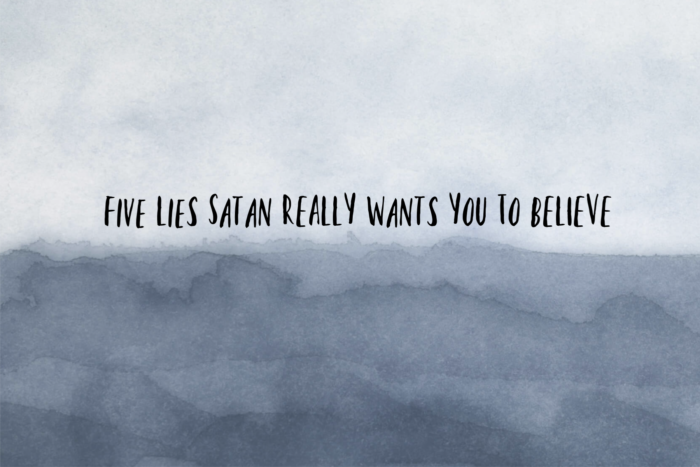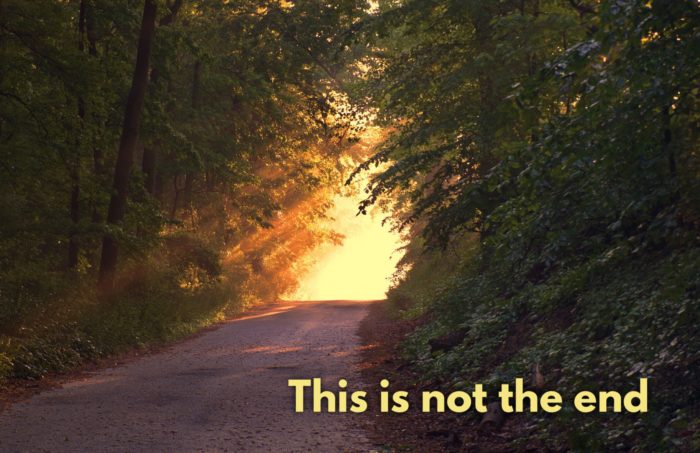How Does a True Christian Act?
If you live in the United States almost everybody is a Christian. It’s the religion they identify with and, oftentimes, it has been passed on from generation to generation. If one goes to a church that uses Christian names like “God” and “Jesus” and other terms from the Bible, there is an assumption that one is a Christian–even if there has never been repentance from sin or personal trust and belief in Jesus as Savior. (Actually I guess there are even many people who consider themselves Christians that rarely, if ever, even step inside a church.)
Of course, we know from the Bible that a genuine Christian has repented of their sins and trusted in Christ alone for salvation. When this happens, we are made into a new creation. Isn’t that a glorious thought? The old things are passed away and all things become new (2 Corinthians 5:17).
So what does this new creation actually look like? How does this person act? What signs show that they are a new creation and not just a false convert?
Romans 12 gives us just such a description. It’s a great litmus test for us, giving us specific things to look for as we examine our lives and test ourselves to see whether or not we are in the faith (2 Corinthians 13:5).
Many of us are very familiar with the first two verses of Romans 12–
I beseech[a] you therefore, brethren, by the mercies of God, that you present your bodies a living sacrifice, holy, acceptable to God, which is your [b]reasonable service. And do not be conformed to this world, but be transformed by the renewing of your mind, that you may prove what is that good and acceptable and perfect will of God.
Paul then takes a few verses to talk about spiritual gifts and the Body of Christ and how it should function. But when we arrive at verse 9, we find out exactly what a genuine Christian should look like on a day-to-day basis.
Before we spend some time looking at Romans 12, let’s remember one extremely important thing. The Christian life is not–and never will be–about perfection. None of us will ever be the “perfect Christian”. Our focus must not be on being perfect but on testing our heart’s desire and our direction. What direction are we going? Are we growing in these things each year? Do we look more like Christ as we mature in the faith? What is our attitude about these things?
All of us will struggle with some more than others. And that’s okay, too. If we know there is a battle, then we know the Holy Spirit is hard at work, convicting us and showing us how we can grow.
So let’s take a look at the description of someone who is a new creation that we find in the second half of Romans 12, starting with verse 9–
Let love be without hypocrisy. Abhor what is evil. Cling to what is good.
A genuine Christian will–
1. Love without hypocrisy
Hypocrisy: the practice of claiming to have moral standards or beliefs to which one’s own behavior does not conform; pretense.
We should love without pretense. A genuine love that stems from our hearts.
2. Abhor what is evil.
Abhor: regard with disgust and hatred.
We should hate that which is evil. We should not be bringing it into our homes via our radios, phones, iPads, and TVs. We should not find ourselves entertained by books, movies, and music that glorifies evil. Instead we should abhor them. I speak specifically to this because I believe this is where many true Christians allow entrance of evil into their lives.
3. Cling to what is good.
Cling: hold on tightly to.
We must put a firm grip on the truth and pure doctrine. Don’t let go just because someone tells you to. Don’t compromise because it is easier. We must hold fast. (I Thessalonians 5:21)
10 Be kindly affectionate to one another with brotherly love, in honor giving preference to one another;
Be kind to our fellow brothers and sisters in the Lord, giving preference to them. This same thought is echoed in Philippians 2:3-4.
Kindness is fairly trendy right now. It is cool to be kind. And that’s not a bad thing. But the kindness referred to here is the kindness we should show our Christian brothers and sisters and flows from a heart that is a reflection of our heavenly Father’s and His love for His children.
11 not lagging in diligence, fervent in spirit, serving the Lord;
A true Christian is diligent and fervent as they serve the Lord. This means they are not lazy or apathetic. They serve the Lord with their whole heart, in whatever opportunity He has given them.
12 rejoicing in hope, patient in tribulation, continuing steadfastly in prayer;
The genuine believer knows that his hope goes beyond this temporal earth, and so his hope remains steady no matter what happens. He is patient in trials, all the while continuing steadfastly in prayer.
13 distributing to the needs of the saints, given to hospitality.
True Christians meet the needs of their fellow believers. And they are given to hospitality.
Hospitality: the friendly and generous reception and entertainment of guests, visitors, or strangers.
Hospitality is not really all that popular anymore. Few people open up their homes to guests outside of family. And I have to admit, the modern life’s pace doesn’t lend itself well to hospitality. But is this a good enough reason to ignore this little phrase?
Perhaps having a hospitable heart is more about our attitude. Do we open up our homes freely when we are given the chance? Do we make people feel comfortable and welcomed, no matter where we meet them? Do we gladly share our resources and time as we are given the opportunity?
14 Bless those who persecute you; bless and do not curse.
Christians bless those who persecute them. We love our enemies (Matthew 5:43-48). This is humanly impossible. You do realize this, right? Only a true believer could bless the one that is hurting them. Do we love our enemies? Do we pray for them? Do we care for their souls? This is a great sign that we are a genuine Christian. If we struggle with this one, perhaps our first step should be to pray that God would help us to do this.
15 Rejoice with those who rejoice, and weep with those who weep.
Fellow Christians rejoice and weep with one another. Instead of jealousy and envy making us sulky at a Christian sister’s good fortune, we are genuinely glad for them. And when bad news hits, we weep with them. We surround our brother or sister with Christian love and care.
16 Be of the same mind toward one another. Do not set your mind on high things, but associate with the humble. Do not be wise in your own opinion.
True Christians are humble. Their opinions about themselves are not inflated and they are not boastful. They are no respecter of persons and they don’t care about someone’s popularity. They will talk freely with and offer their aid to anyone, no matter their age, sex, race, status, or reputation.
17 Repay no one evil for evil. Have regard for good things in the sight of all men.
Christians do not take revenge on those that have hurt them. (Connects pretty closely to blessing those that persecute us, doesn’t it?) We are known for our regard of good things (true, right, holy) by anyone who happens to be watching us.
18 If it is possible, as much as depends on you, live peaceably with all men.
It is not possible to always be at peace with all people. Some decide they hate you and, no matter what you do, you can’t change their minds. But this verse gives us comfort. If it is possible. God clearly recognizes that it isn’t always possible. But as much as it depends on us, we are to be at peace with all people. Have we done all we can to bring about peace with those around us? This should describe us, as believers.
19 Beloved, do not avenge yourselves, but rather give place to wrath; for it is written, “Vengeance is Mine, I will repay,” says the Lord. 20 Therefore
“If your enemy is hungry, feed him;
If he is thirsty, give him a drink;
For in so doing you will heap coals of fire on his head.”
Again, we are faced with our attitude about our enemies. Genuine believers are not to live with revenge burning in our hearts. We are to actually do the opposite and reach out to an enemy in need. We are to do this and let God take care of the rest. Only God could enable a heart and mind to love an enemy in this way. Only God.
21 Do not be overcome by evil, but overcome evil with good.
And, finally, a genuine believer is not overcome by the evil of this world. Instead, we overcome the evil with good! We know that God is in control, no matter how evil this world gets and that He will triumph! Our job is to shine His light and go forth as witnesses in our homes, work places, on the sidelines and bleachers of athletic events, in our churches, and when we are shopping. Any time. All times.
____________________________________________
The Bible functions as a mirror (James 1:22-24) and Romans 12 is an especially painful place to look at my reflection. While I do see some of these in my life, I also see much need for growth. I hope that this glance at this chapter has encouraged and challenged you, like it has me.
May we cast aside our pride and may the Holy Spirit fill us with a desire to be more like Christ as we continue on in our life’s journey. I am so thankful that we have the Bible to cast light on our path and to show us which direction we should be headed. Let’s try to live out Romans 12 this week and every week. And in so doing, may we shine brightly for Christ in this dark world!


